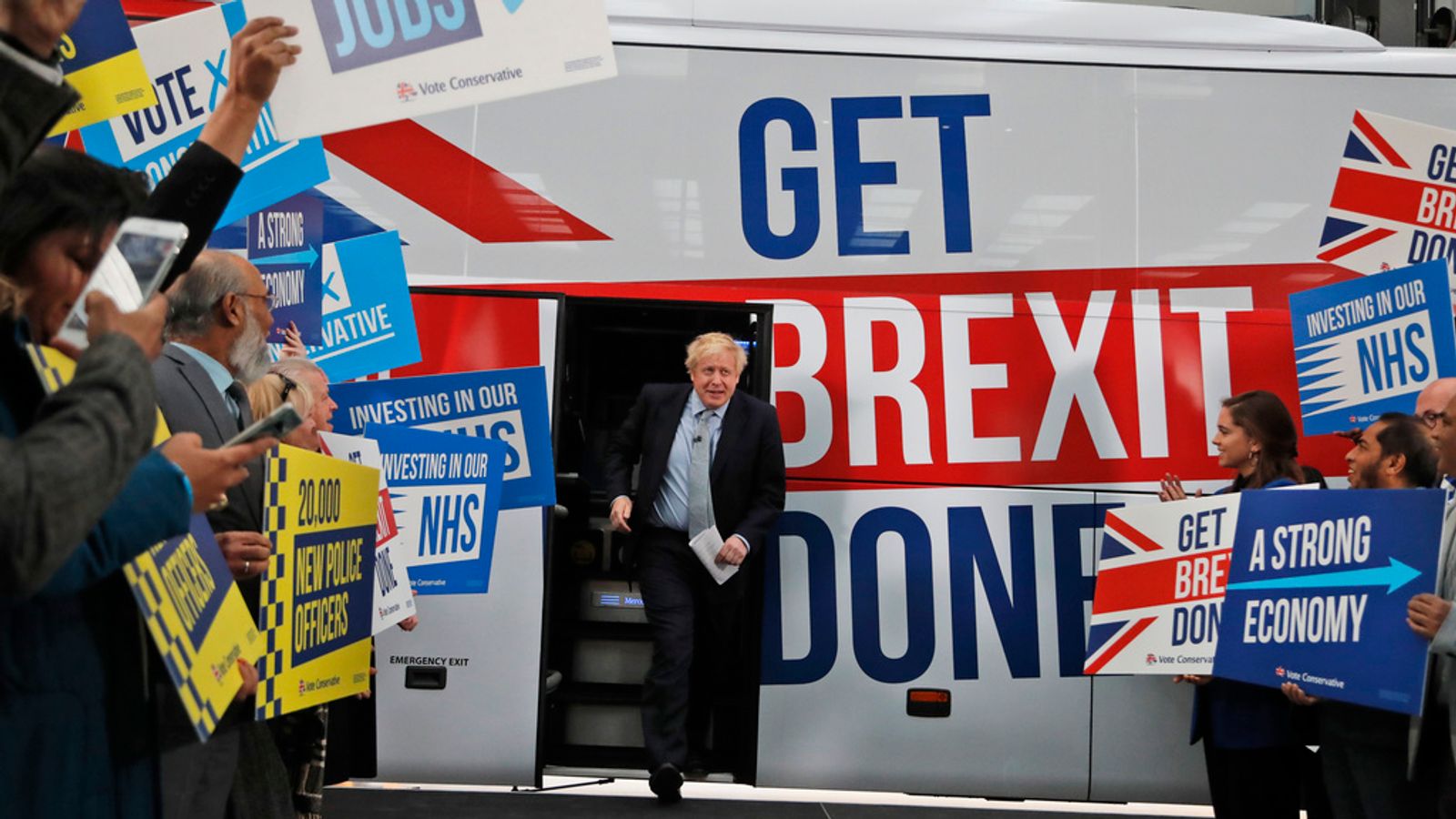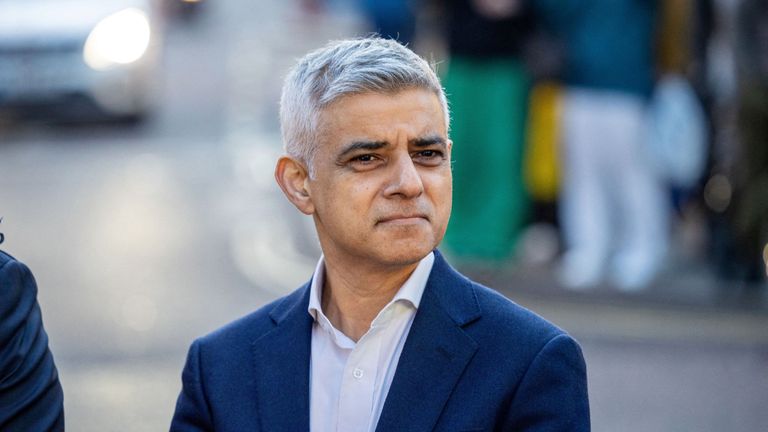Brexit has cost the UK £140bn so far, according to new analysis, and could see the nation £311bn worse off by the middle of the next decade, according to a new report.
Economists and analysts at Cambridge Econometrics – commissioned by London’s mayor, Sadiq Khan – have modelled how the UK’s economy would have acted were it still in the European Union.
This was compared to data published by the Office for Budget of Responsibility in March 2023, and forecasts based on those data. Those official forecasts have since been downgraded as of November last year.
Politics latest: Post Office investigator ‘one of worst in history’
The headline findings from the report include lower growth, lower employment, strong negative impacts on investment, imports falling more than exports, and a growing gap between London and the rest of the UK.
The report analysed the gross value added – GVA – which is a measure of how much value is added by an area through the production of goods and the actions of services.
Cambridge Econometrics says it found UK GVA was £2,207bn in 2023 under current circumstances, and will be £2,771bn by 2035.
But without Brexit, the organisation states the UK would have had a GVA of £2,347bn in 2023, and it would have reached £3,082bn by 2035.
This equates to GVA being 6% lower in 2023 than it would have been without Brexit, and 10.1% lower in 2035.
They found that, by 2035, the UK is anticipated to have three million fewer jobs, 32% lower investment, 5% lower exports and 16% lower imports, than it would have had if the UK had not left the EU.
Cambridge Econometrics also found Brexit is expected to cause the productivity gap between London and the rest of the UK to widen further.
The scenario which included the UK in the EU used an E3ME model, which is used transnationally for forecasting. It includes data from UN, OECD, World Bank, IMF, the ONS and Eurostat.
The report says it tried to “isolate and subtract” the “Brexit effect” from factors like trade and investment in the main scenario – which it says is “effectively modelling a scenario in which other factors (eg, the COVID-19 pandemic and the war in Ukraine) took place but Brexit did not”.
Read more:
Post-Brexit border controls to cost businesses £330m a year
Starmer: We don’t want to diverge from EU
Shyamoli Patel, principal economist at Cambridge Econometrics, said: “Our study reveals that London’s economy would have grown faster if Brexit hadn’t taken place. Looking ahead, we project that Brexit will continue to have an impact on the UK and London economies in the medium term.”
Mr Khan is set to use the report to make the case for a closer relationship with Europe on Thursday evening at Mansion House.
The London mayor will say that it is “now obvious that Brexit isn’t working” – blaming the “hard-line Brexit we’ve ended up with”.
Mr Khan will add: “The cost of Brexit crisis can only be solved if we take a mature approach and if we are open to improving our trading arrangements with our European neighbours.
“I agree with the shadow foreign secretary [David Lammy], who has said we urgently need to build a closer relationship with the EU.”
With a general election looming, Brexit will be an issue used to attack Labour and its leader Sir Keir Starmer, who backed a second referendum.


